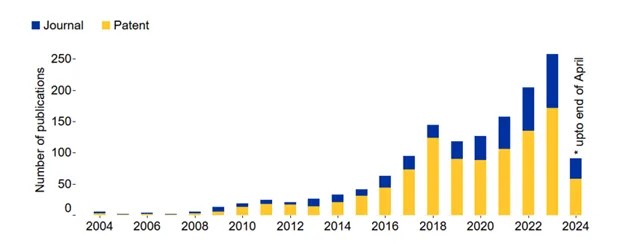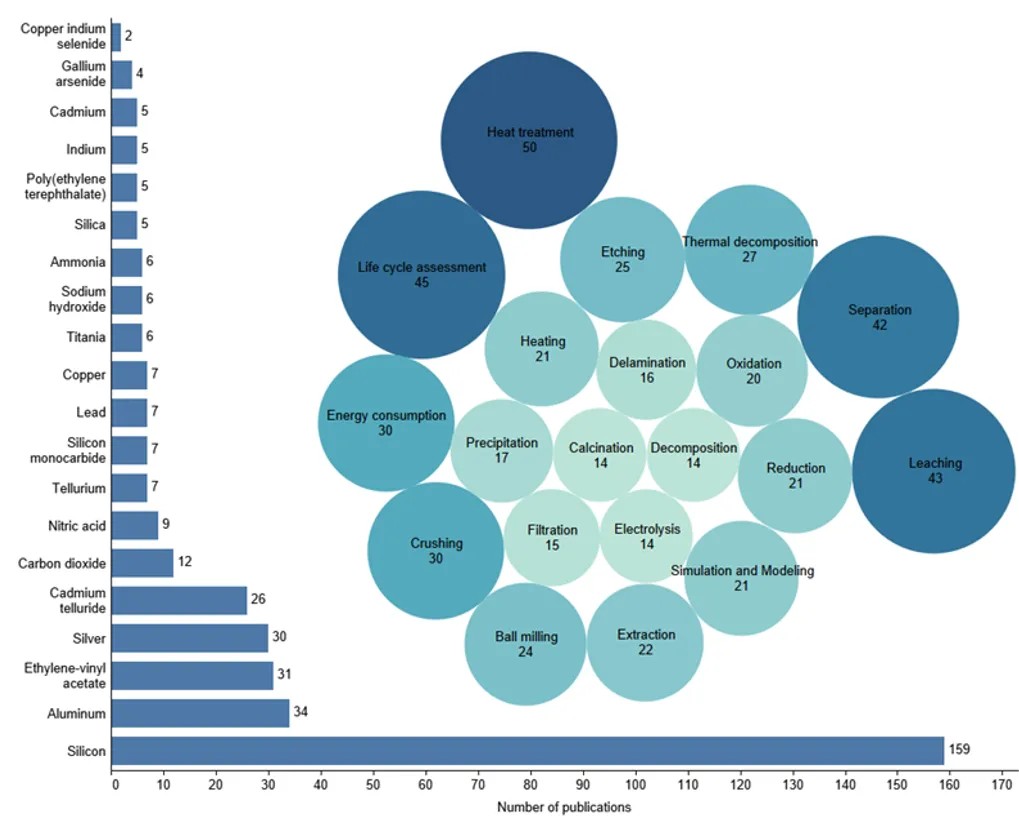Company News
Solar energy has emerged as a critical component of the transition to a more sustainable energy future. However, as the deployment of solar panels accelerates, so does the need for robust recycling solutions to handle the eventual influx of decommissioned panels. Improving solar panel recycling not only supports environmental sustainability but also fosters a circular economy by reclaiming valuable materials. This analysis explores the current challenges in solar panel recycling and offers solutions to enhance the efficiency, scalability, and economic feasibility of these systems.
1. Current Challenges in Solar Panel Recycling
1.1 Lack of Standardized Recycling Processes
The global solar industry lacks standardized protocols for recycling, leading to fragmented practices. Different types of solar panels, primarily crystalline silicon (c-Si) and thin-film, require different recycling techniques, complicating the development of universal recycling solutions. As a result, recycling plants often need to specialize in a single type of panel, which limits their operational flexibility and scalability.
1.2 Economic Viability
Recycling solar panels is currently more expensive than disposing of them in landfills. This cost disparity is driven by the labor-intensive process of extracting valuable materials such as silicon, silver, and copper. The profitability of recovered materials is generally low due to fluctuating market prices and the relatively small quantities extracted from panels.
1.3 Regulatory and Policy Gaps
In many regions, regulations mandating solar panel recycling are either weak or non-existent. While the European Union has implemented strict rules under its Waste Electrical and Electronic Equipment (WEEE) Directive, other major markets, such as the United States and parts of Asia, lag behind in policy development. This inconsistency hampers widespread adoption of recycling practices and reduces incentives for manufacturers and recycling facilities to invest in better infrastructure.
2. Strategies for Enhancing Solar Panel Recycling
2.1 Developing Advanced Recycling Technologies
Innovations in recycling technologies can greatly improve the efficiency and profitability of solar panel recycling. Mechanical and thermal processes are being refined to increase the purity and yield of recovered materials. For example:
Laser delamination has emerged as a promising method for cleanly separating the layers of a solar panel, reducing damage to reusable components.
Hydrometallurgical methods, involving the use of chemical solvents, are under investigation for their potential to selectively extract valuable metals without the environmental impact of traditional pyrometallurgical processes.
Continued research and development into these technologies could drive down costs and improve the recovery rates of key materials, making recycling more economically viable.
2.2 Implementing Circular Design Principles
Manufacturers should be encouraged to incorporate circular design principles into the production of solar panels. This means designing panels that are easier to disassemble and recycle at the end of their lifecycle. Strategies include:
Modular panel construction, allowing for simpler separation of components.
Labeling of materials to aid automated sorting and recycling processes.
Standardized designs that facilitate easier recycling across different brands and types.
By embedding recyclability into the initial design, manufacturers can extend the lifecycle of solar panels and reduce the complexity of the recycling process.
2.3 Policy and Legislative Measures
Effective policy is essential for driving large-scale adoption of recycling practices. Governments can:
Mandate recycling requirements for all solar panels reaching the end of their useful life.
Provide subsidies or tax incentives for recycling facilities and manufacturers that prioritize sustainable practices.
Establish partnerships with industry stakeholders to develop comprehensive frameworks that address the entire lifecycle of solar panels, from production to disposal.
Drawing inspiration from the EU’s WEEE Directive, countries could enforce producer responsibility schemes that require manufacturers to finance recycling efforts, aligning economic incentives with sustainability goals.

2.4 Scaling Up Infrastructure and Collaboration
Building the necessary infrastructure to support widespread solar panel recycling is another crucial step. This includes:
Expanding the number of dedicated recycling facilities to handle increased demand as more panels reach end-of-life status.
Encouraging public-private partnerships to leverage resources, expertise, and funding.
Global collaboration among countries to share technological advancements and best practices can foster an international approach to recycling, which is especially important given the global nature of the solar panel supply chain.
2.5 Consumer Awareness and Participation
Educating consumers about the importance of recycling and how they can contribute to this effort is often overlooked but essential. By promoting awareness campaigns, the industry can ensure that end-users are informed about how to dispose of their panels responsibly and where they can access recycling services.

3. Conclusion:
Improving solar panel recycling requires a multifaceted approach involving technological innovation, legislative action, infrastructure development, and consumer engagement. By investing in research and the adoption of advanced recycling methods, supporting circular design, enacting robust policies, and scaling infrastructure, the solar industry can shift from a linear to a circular economy. This shift is crucial for reducing waste, conserving natural resources, and enhancing the sustainability of renewable energy solutions. As solar power continues to expand, refining recycling practices will not only mitigate potential environmental challenges but also unlock economic opportunities in the burgeoning recycling market.






